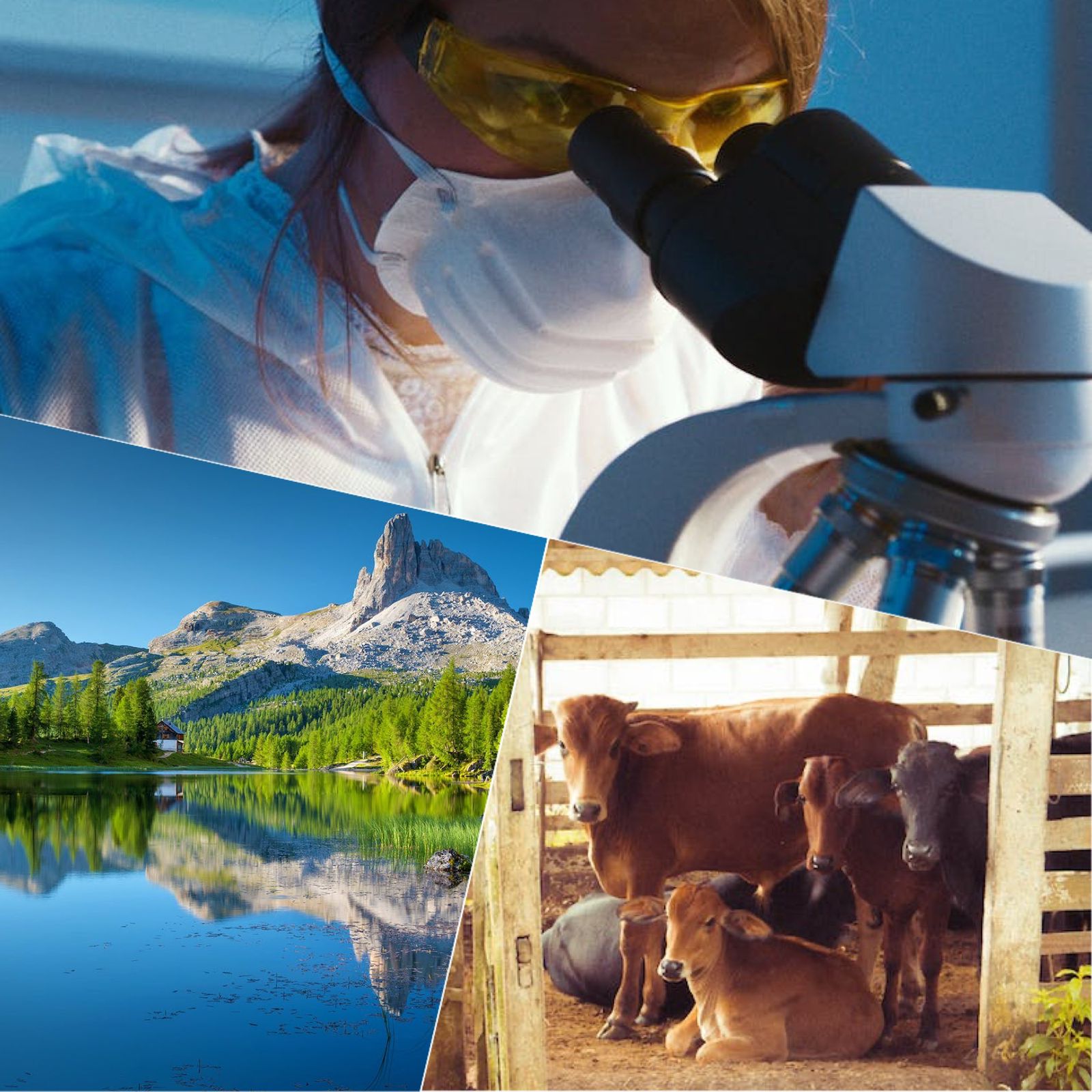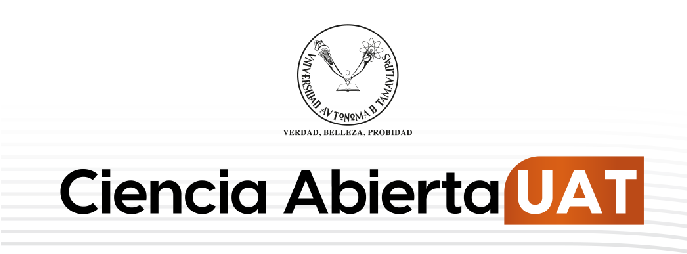One health: a veterinary perspective
DOI:
https://doi.org/10.29059/cvpa.v1i1.5Keywords:
Environmental health, zoonosis, public health, One HealthAbstract
In this review, the concept of One Health will be addressed from a veterinary medicine perspective. It is important to mention that although this concept was formalized at the beginning of this century, the aspects included in this concept have been considered since ancient times and through all these years have been named in different ways. Calvin Schwabe introduced the term "One Medicine" in the 1970s while working in the field of veterinary epidemiology to describe the interactions between human and animal health. Three decades later, in 2008, the World Health Organization (WHO), the Food and Agriculture Organization of the United Nations (FAO), and the World Organization for Animal Health (OIE) formally adopted the concept of "One Health" with the aim of addressing health problems at the human-animal-environment interface. Today, after having been through a pandemic that may have originated from a pathogen in wildlife the only approach capable of helping us deal with future zoonotic diseases is One Health. Therefore, the role that veterinarians play is the most important to face them, the efforts must focus on health and zoonotic risks as the origin of public health problems and consider prevention and detection from the source of the infection by teaching this approach to future generations of veterinary medicine professionals.
References
Abubakr, Z., & Saavedra, C. (2018). A comparative analysis of the effects of landfills on wáter quality: a case study of two locations in New Jersey. Revista de Iniciación Científica, 4(2),9-13. https://doi.org/10.33412/rev-ric.v4.2.2137
Binswanger-Mkhize, H. P., & Savastano, S. (2017). Agricultural intensification: The status in six frican countries. Food Policy, 67, 26-40. https//doi.org/10.1016/j.foodpol.2016.09.021
Boadella, M., Gortazar, C., Acevedo, P., Carta, T., Martín-Hernando, M. P., de la Fuente, J., &Vicente, J. (2011). Six recommendations for improving monitoring of diseases shared with wildlife: examples regarding mycobacterial infections in Spain. European Journal of Wildlife Research, 57, 697-706. https://doi.org/10.1007/s10344-011-0550-x
Botello, F., Castañeda, S., Sarmiento, J., & Sánchez-Cordero, V. (2022). Una sola salud. Las zoonosis y las áreas naturales protegidas de la región centro de México. Deutsche Gesellschaft für Internationale Zusammenarbeit (GIZ) GmbH; Comisión Nacional de Áreas Naturales Protegidas; Instituto de Biología, Universidad Nacional Autónoma de México; Conservación Biológica y Desarrollo Social, A. C. https://www.giz.de/de/downloads/giz2022-es-naturschutzgebiete-mexiko.pdf
Coria-Lorenzo, J. J, Sierra-Calle, A. E, Guerrero-Mendoza, G., & Field-Cortázares, J. (2019). Influenza y los virus aviar: la amenaza latente de un nuevo virus pandémico. Acta Pediátrica de México, 40(3), 154-165.
Deusch, S., Tilocca, B., Camarinha-Silva, A., & Seifert, J. (2015). News in livestock research—useof Omics-technologies to study the microbiota in the gastrointestinal tract of farm animals. Computational and Structural Biotechnology Journal, 13, 55-63. https://doi.org/10.1016/j.csbj.2014.12.005
Di Marco, M., Baker, M. L., Daszak, P., De Barro, P., Eskew, E. A., Godde, C. M., Harwood, T.D., Herrero, M., Hoskins, J. A., Johnson, E., Karesh, W. B., Machalaba, C., Navarro, G. J., Paini, D., Pirzl, R., Smith, M. S., Zambrana-Torrelino, C., & Ferrier, S. (2020). Sustainable development must account for pandemic risk. Proceedings of the National Academy of Sciences, 117(8), 3888-3892. https://doi.org/10.1073/pnas.200165511
Dione, M., Masembe, C., Akol, J., Amia, W., Kungu, J., Lee, H. S., & Wieland, B. (2018). The importance of on-farm biosecurity: Sero-prevalence and risk factors of bacterial andviral pathogens in smallholder pig systems in Uganda. Acta Tropica, 187, 214-221. https://doi.org/10.1016/j.actatropica.2018.06.025
FAO, OIE, & OMS. (2019). Adopción del enfoque multisectorial “Una Salud” – Guía tripartita para hacer frente a las enfermedades zoonóticas en los países. https://www.woah.org/app/uploads/2021/03/es-tripartitezoonosesguide-webversion.pdf
Fernández, D. V., Sánchez-Vizcaíno, J. M., & Avilés, M. M. (2017). Repercusiones sanitarias del tráfico ilegal de aves silvestres. Revista Complutense de Ciencias Veterinarias, 11(2), 25-26.
Gómez-Luna, L. M., Guasch-Hechavarría, F., García-González, A., Muñoz-Padilla, A., Moya-Gómez, A. E., & Savón-Vaciano, Y. (2020). Un análisis de la percepción del riesgo ante la Covid-19. Ciencia en su PC, 1(2), 1-24.
González, S. R., & Pimienta, C. I. (2022). El enfoque “una sola salud” y las zoonosis reemergentes. Universidad y Sociedad, 14(S2), 385-390.
Hegewisch-Taylor, J., Dreser-Mansilla, A., Aragón-Gama, A., Moreno, A., Ramos-García, C., Reyes-Morales, H., Pelcastre-Villafuerte, B., Álvarez, A., Anaya-Sánchez, A., Rico-Cuevas, J. I., & Ruckert, A. (2022). Gobernanza de Una Sola Salud en México: una construcción necesaria para enfrentar amenazas sanitarias. Gaceta INSP, 5(4), 18-21. https://www.insp.mx/resources/images/stories/Gaceta/vol17/220518_Gaceta_vol_17.pdf
Jawerth, N. (2020). Enfermedades infecciosas y cómo pueden ayudar las ciencias nucleares. Boletín del OIEA, 61(2), 4-5. https://www.iaea.org/sites/default/files/6120405es.pdf
Kelly, T. R., Machalaba, C., Karesh, W. B., Crook, P. Z., Gilardi, K., Nziza, J., Uhart, M., Robles, E., Saylors, K., Joly, D., Monagin, C., Mangombo, P., Kingebeni, P., Kazwala, R., Wolking, D., Smith, W., Consortium, P., & Mazet, J. (2020). Implementing One Health approaches to confront emerging and re-emerging zoonotic disease threats: lessons from PREDICT. One Health Outlook, 2, 1-7. https://doi.org/10.1186/s42522-019-0007-9
Kraemer, S. A., Ramachandran, A., & Perron, G. G. (2019). Antibiotic pollution in the environment: from microbial ecology to public policy. Microorganisms, 7(6), 180. https//doi.org/10.3390/microorganisms7060180
Ledo, M. J. V., Vera, I. A., Suárez, J. L. A., Suárez, I. M., & Sao, M. P. (2021). Una Salud. Educación Médica Superior, 35(2), e2890. https://www.medigraphic.com/pdfs/educacion/cem-2021/cem212r.pdf
Leopardi, S., Priori, P., Zecchin, B., Zamperin, G., Milani, A., Tonon, F., Giorgiutti, M., Beato, M.S., & De Benedictis, P. (2021). Interface between bats and pigs in heavy pig production. Viruses, 13(1), 1-4. https://doi.org/10.3390/v13010004
Lozano-López, E., Austreberta-Nazar-Beutelspacher, D., & Nahed-Toral, J. (2022). Brucelosis bovina y humana en el sur de México: Una zoonosis desatendida. Revista Chilena de Infectología, 39(2), 157-165.
Mackenzie, J. S., & Jeggo, M. (2019). The One Health approach—Why is it so important? Tropical Medicine and Infectious Disease, 4(2), 88. https://doi.org/10.3390/tropicalmed4020088
Marrana, M., Donachie, D., Lasley, J., Muset, S., Diaz, F., Tizzani, P., Messori, S., Grillo, T., Stone, M., Karesh, W., & Hamilton, K. (2021, May 24-28). Lessons identified from beforeand during the pandemic: how the OIE can support veterinary services to achieve one health resilience [Paper presenttion]. World Organizarion for Animal Health 88th General Session, Paris, France. https://web.oie.int/downld/SG/2021/A_88SG_9.pdf
McEwen, S. A., & Collignon, P. J. (2018). Antimicrobial resistance: a one health perspective. En S. Schwarz, L. M. Cavaco & J. Shen (Eds.), Antimicrobial resistance in bacteria from livestock and companion animals (pp. 521-547). American Society for Microbiology. https://doi.org/10.1128/9781555819804.ch25
Mellor, P. S., & Leake, C. J. (2000). Climatic and geographic influences on arboviral infections and vectors. Revue Scientifique et Technique-Office International des Epizooties, 19(1), 41-48. https://doi.org/10.20506/rst.19.1.1211
Mokhtari, S., Khomeiri, M., Jafari, S. M., Maghsoudlou, Y., & Ghorbani, M. (2017). Descriptive analysis of bacterial profile, physicochemical and sensory characteristics of grape juice containing Saccharomyces cerevisiae cell wall coated probiotic microcapsules during storage. International Journal of Food Science & Technology, 52(4), 1042-1048. https://doi.org/10.1111/ijfs.13370
Monsalve, S., Mattar, S., & González, M. (2009). Zoonosis transmitidas por animales silvestres y su impacto en las enfermedades emergentes y reemergentes. Revista MVZ Córdoba, 14(2), 1762-1773.
Nguyen, T. T. K., Ngo, T. T., Tran, P. M., Pham, T. T. T., Vu, H. T. T., Nguyen, N. T. H., Thwaites, G., Virtala, A. K., Vapalahti, O., Baker, S., & Le Van, T. (2020). Respiratory viruses inindividuals with a high frequency of animal exposure in southern and highland Vietnam. Journal of Medical Virology, 92(8), 971-981. https://doi.org/10.1002/jmv.25640
OIE, & FAO. (2015). Global control and eradication of peste des petits ruminants. Investing in veterinary systems, food security and poverty alleviation. https://www.fao.org/3/i4477e/i4477e.pdf
OPS, & OMS. (2021, Junio 21-25). Una salud: un enfoque integral para abordar las amenazas parala salud en la interfaz entre los seres humanos, los animales y el medioambiente [Proyecto de resolución]. 168a Sesión del Comité Ejecutivo de la Organización Panamericana de la Salud (OPS) y Organización Mundial de la Salud (OMS), sesión virtual. https://www.paho.org/es/documentos/ce16813-rev-1-salud-enfoque-integral-para-abordar-amenazas-para-salud-interfaz-entre
OPS. (2017). Salud en las Américas+, edición del 2017. Resumen: panorama regional y perfiles de país. Organización Panamericana de la Salud. https://www.paho.org/salud-en-las-americas-2017/wp-content/uploads/2017/09/Print-Version-Spanish.pdf
Overgaauw, P. A., Vinke, C. M., van Hagen, M. A., & Lipman, L. J. (2020). A one health perspective on the human–companion animal relationship with emphasis on zoonotic aspects. International Journal of Environmental Research and Public Health, 17(11), 3789. https//doi.org/10.3390/ijerph17113789
Secretaría de Salud. (2021). Programa de acción específico. Prevención y control de enfermedades zoonóticas y emergentes 2020-2024. https://www.gob.mx/cms/uploads/attachment/file/738300/PAE_Zoonosis.pdf
Suárez-Lima, G. J., Robles-Salguero, R. E., Serrano-Mantilla, G. L., Serrano-Cobos, H. G., Armijo-Ibarra, A. M., & Anchundia-Guerrero, R. E. (2019). Percepción sobre calidad de la atención en el centro de salud CAI III. Revista Cubana de Investigaciones Biomédicas,38(2), 153-169.
Suu-Ire, R. D., Obodai, E., Bonney, J. H., Bel-Nono, S. O., Ampofo, W., & Kelly, T. R. (2021). Viral zoonoses of national importance in Ghana: advancements and opportunities for enhancing capacities for early detection and response. Journal of Tropical Medicine, 2021,8938530. https://doi.org/10.1155/2021/8938530
Torres-Castro, M., Cruz-Romero, A., Ochoa-Valencia, J. L., Torres-León, M. A., & Lugo-Caballero, C. I. (2023). La rabia: enfermedad zoonótica reemergente en México. Bioagrociencias,16(1), 1-12. https://doi.org/10.56369/BAC.4767
Vignolo, J., Vacarezza, M., Álvarez, C., & Sosa, A. (2011). Niveles de atención, de prevención y atención primaria de la salud. Archivos de Medicina Interna, 33(1), 7-11.
Wee, B. A., Muloi, D. M., & van Bunnik, B. A. D. (2020). Quantifying the transmission of antimicrobial resistance at the human and livestock interface with genomics. Clinical Microbiology Infection, 26(12), 1612-1616. https://doi.org/10.1016/j.cmi.2020.09.019
White, A., & Hughes, J. M. (2019). Critical importance of a one health approach to antimicrobial resistance. EcoHealth, 16(3), 404-409. https://doi.org/10.1007/s10393-019-01415-5
Yoo, H. S., & Yoo, D. (2020). COVID-19 and veterinarians for one health, zoonotic-and reverse-zoonotic transmissions. Journal of Veterinary Science, 21(3), e51. https://doi.org/10.4142/jvs.2020.21.e51
Zaragoza, F. M., Guerrero, F. F., & García, S. V. (2019). One Health. Cambio climático, contaminación ambiental y el impacto sobre la salud humana y animal. Amazing Books.
Zinsstag, J., Schelling, E., Crump, L., Whittaker, M., Tanner, M., & Stephen, C. (2020). OneHealth: the theory and practice of integrated health approaches. CABI Digital Library. https://doi.org/10.1079/9781780643410.0000
Zunino, P. (2018). Historia y perspectivas del enfoque “Una Salud”. Veterinaria (Montevideo),54(210), 46-51. https://doi.org/10.29155/VET.54.210.8

Published
How to Cite
Issue
Section
License
Copyright (c) 2023 Ciencias Veterinarias y Producción Animal

This work is licensed under a Creative Commons Attribution-NonCommercial-ShareAlike 4.0 International License.
Accepted 2023-07-27
Published 2023-08-11







